Latest
Development of Technique and Its’ Right of Use Helps Expression and Musicality by Yiorgos Fakanas

I would like before anything else to express my true joy at being able through the pages of the hospitable Bass Musician Magazine to communicate with friends and colleague’s, and in particular bass players, and exchange experiences, ideas, and concerns about our strong mutual creative passion.
Coming from Greece, a European country evolving from an ancient civilization and with substantial musical activity today, I have experientially developed a particular mode of analysis and thought on my musical involvement with Jazz, Fusion, and their “offspring’s”, which in my opinion constitute international musical streams, and a universal language of expression and communication. I will try, through this electronic column to convey my thoughts and my view on all those issues which concern our music, and which of course have as their main protagonist, the bass.
I have been a professional bass player, composer, arranger, and teacher of our instrument, as well as Jazz theory for over thirty years. In all that time, I’ve had the opportunity to reap some exceptional experiences and knowledge, and to collaborate with some of the best musicians in the world. And as a teacher, I have followed my new bass students’ concerns and anxieties. As a result of my educational role, I among other things have accumulated a whole list of issues that concern the younger players as well as some professional bass players, issues that relate entirely to music. But I’ve also experienced greater issues as well, more philosophical, artistic, and work-related issues for the new as well as the accredited musician.
A prevailing issue is the need for and the degree of the development of technical dexterity for the bass-player, and to what extent this affects their musicality and expressiveness.
Technique is an enormous issue with any instrument, and there are many conflicting views on its use and utility. I could say that it has its proponents, and opponents. I will try in the following lines to briefly present my own view, knowing that it is impossible to exhaust such a wide topic in a few words. I will simply expose some of the main opposing arguments on the usefulness of technique in today’s musical reality in creative music, merely as a starting point for further discussion and exchange of views between us.
Let’s define, initially, what we mean by “technique” for any musical instrument. It is the totality of actions performed by a musician to adjust their muscular system, at its highest level, in order to carry out the necessary movements required by their instrument, so as to produce the desired result for the performance of simple or intricate compositions. In other words, the versatility and speed of the hands with respect to the musical material at hand determines the extent of technique necessary for the musician, and bassist.
Technique and its development constitute in my opinion the basic determining factor for the potential of each musician for expression. I cannot imagine how a musician without any technique, and whose relation to his instrument is not characterized by any form of dexterity, can aspire, through his instrument and music, to express their sonic experiences, their spiritual mood, and the communicative exchange he or she wants to form between themselves and their audience. Because what differentiates a musician from other people is that he or she creates through the ability to communicate via a musical instrument!
How unrealistic then are the claims, especially by younger musicians, that the development of technique opposes musicality, that it limits freedom of expression by imposing particular paths and forms tried in the past yet restrictive for the progression of new ideas. I believe the exact opposite. Expression alone means nothing for an artist unless they control the technical means of their art. Of course the impulse of the young, who want to acquire years of knowledge and experience as quickly as possible trying to instantly surpass the old and replace it with their own, adopts this type of view about the more scholastic involvement with the musical object. Time is needed, as well as determination and patience, to develop an expressive means to a high level. But it’s a necessary process if we want to play whatever we choose with ease and persuasiveness, and express our mind, heart, and spirit. It is inconceivable for a musician not to know music, and for a performer of a musical instrument not to grasp its technical secrets. It is essential to know the whole in order to be able to use that part of it that inspiration calls for each time, or that the musical work we are called to interpret requires.
However, I do not support the use of technique, for no reason other than exhibition, not serving the essence. Naturally, a musician needs to be able to play intricate melodic, harmonic, and rhythmic patterns, assuming they know each time what and why they are doing it, and not just to show-case the abilities of their hands. Today, a number of bass players use techniques like slapping and tapping merely to impress their audience, without this being obligated by some deeper expressive need. There, and whenever such phenomena occur, we have a misuse of technique. Not because the dense and intense bass line devitalizes the composition, but because in essence it is not called for by the piece itself.
Naturally, I am not suggesting that everything should be simplified so as not to burden the message to the audience. I adore intricate music and intricate bass patterns, as long as their presence is a natural consequence of the work, and not disconnected from it. Intricacy in expression does not invalidate the austerity of a musical work if it is necessitated by the work itself, and accompanied by having knowledge of the use of the mediums.
Conclusion: It is all good, and desirable for today’s bass player to develop his or her technical resourcefulness to the fullest, as long as they are aware that this is a means to an end, the end being inspired expression and a deeper musicality. We should also be reminded for the sake of the argument that the knowledge and progress of technique has never interfered with eloquence in expression. On the contrary, it has helped it shine whenever used with the aim of a high musical outcome.
Yiorgos Fakanas
Bass Videos
Interview With Bassist Erick “Jesus” Coomes
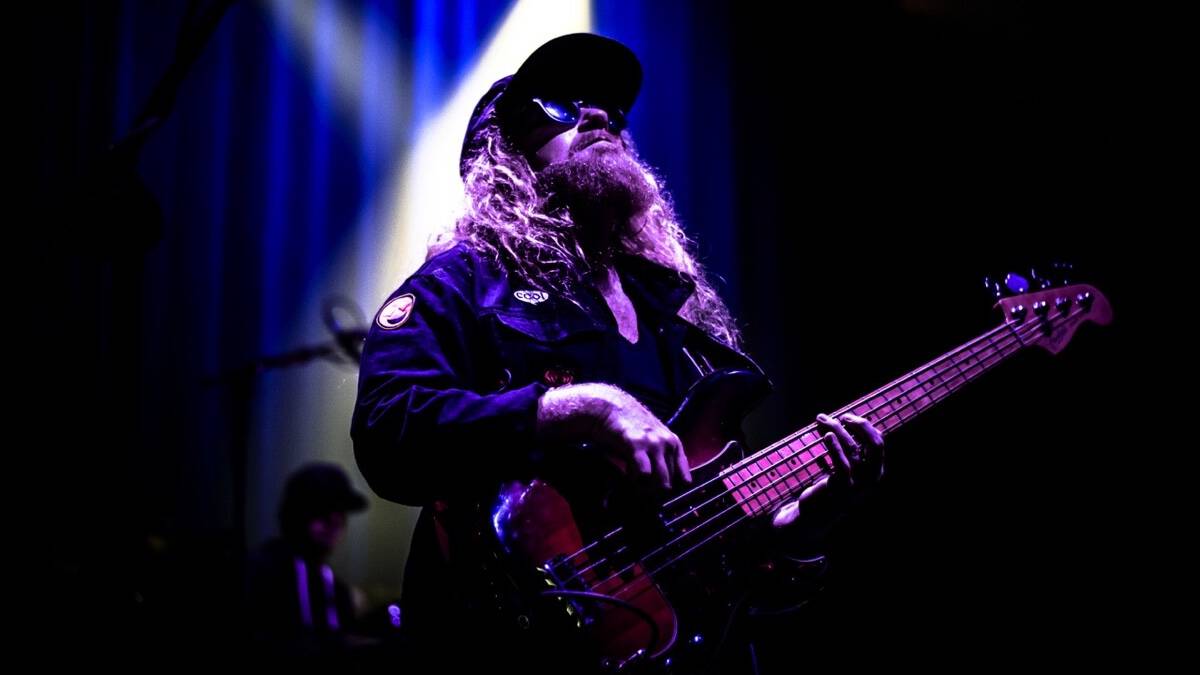
Bassist Erick “Jesus” Coomes…
It is always great to meet a super busy bassist who simply exudes a love for music and his instrument. Erick “Jesus” Coomes fits this description exactly. Hailing from Southern California, “Jesus” co-founded and plays bass for Lettuce and has found his groove playing with numerous other musicians.
Join us as we hear of his musical journey, how he gets his sound, his ongoing projects, and his plans for the future.
Photo, Bob Forte
Featured Videos
Visit Online
www.lettucefunk.com
IG @jesuscsuperstar
FB@jesuscoomes
FB @lettucefunk
Bass Videos
Working-Class Zeros: Episode #2 – Financial Elements of Working Musicians
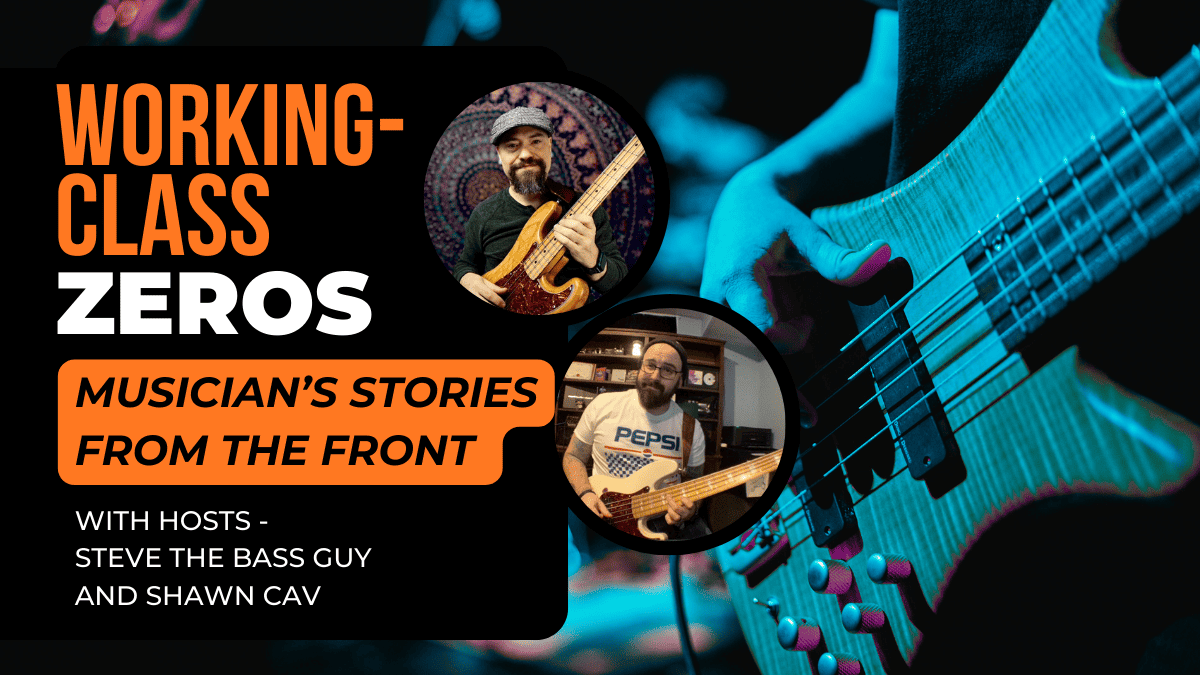
Working-Class Zeros: Episode #2 – Financial Elements of Working Musicians
“These stories from the front are with real-life, day-to-day musicians who deal with work life and gigging and how they make it work out. Each month, topics may include… the kind of gigs you get, the money, dealing with less-than-ideal rooms, as well as the gear you need to get the job done… and the list goes on from there.” – Steve the Bass Guy and Shawn Cav
Latest
This Week’s Top 10 Basses on Instagram
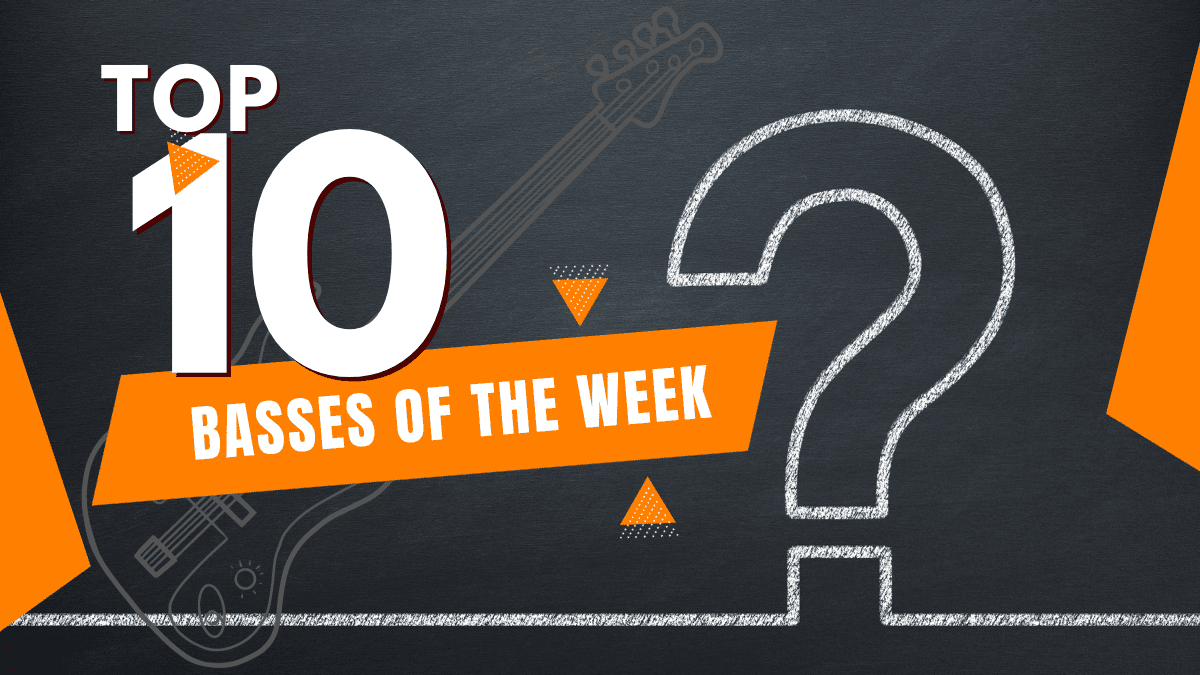
Check out our top 10 favorite basses on Instagram this week…
Click to follow Bass Musician on Instagram @bassmusicianmag
FEATURED @foderaguitars @overwaterbasses @mgbassguitars @bqwbassguitar @marleaux_bassguitars @sugi_guitars @mikelullcustomguitars @ramabass.ok @chris_seldon_guitars @gullone.bajos
Bass CDs
New Album: Jake Leckie, Planter of Seeds
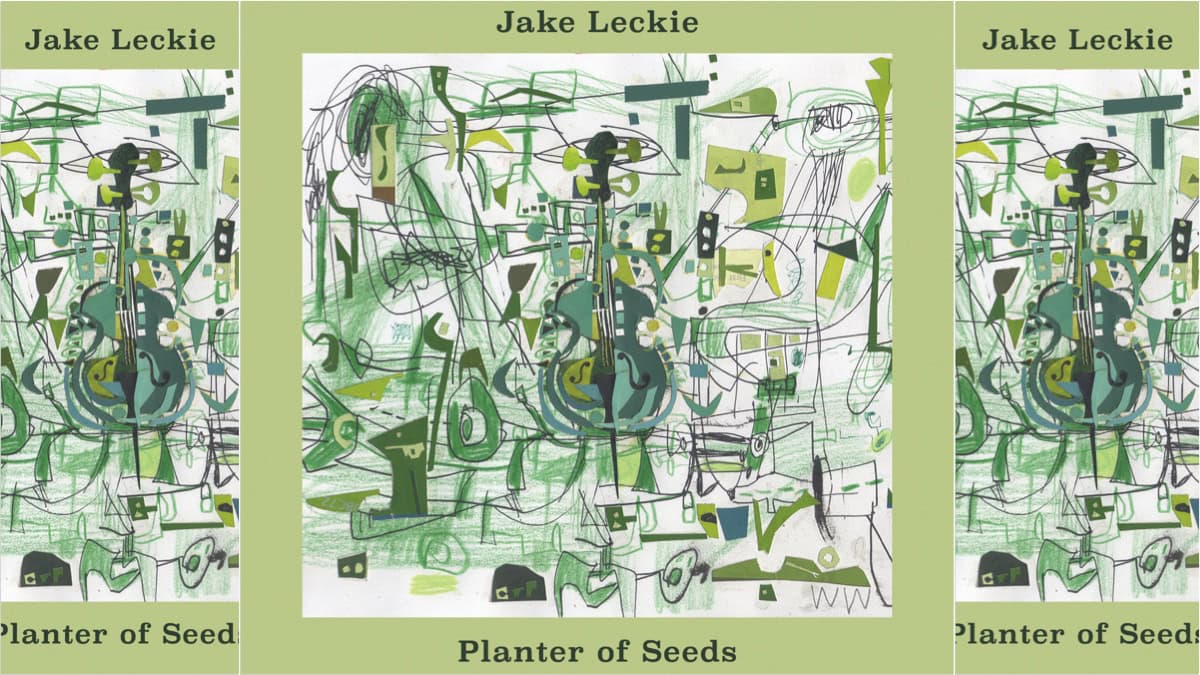
Bassist Jake Leckie and The Guide Trio Unveil New Album Planter of Seeds,
to be released on June 7, 2024
Planter of Seeds is bassist/composer Jake Leckie’s third release as a bandleader and explores what beauty can come tomorrow from the seeds we plant today.
What are we putting in the ground? What are we building? What is the village we want to bring our children up in? At the core of the ensemble is The Guide Trio, his working band with guitarist Nadav Peled and drummer Beth Goodfellow, who played on Leckie’s second album, The Guide, a rootsy funky acoustic analog folk-jazz recording released on Ropeadope records in 2022. For Planter of Seeds, the ensemble is augmented by Cathlene Pineda (piano), Randal Fisher (tenor saxophone), and Darius Christian (trombone), who infuse freedom and soul into the already tightly established ensemble.
Eight original compositions were pristinely recorded live off the floor of Studio 3 at East West Studios in Hollywood CA, and mastered by A.T. Michael MacDonald. The cover art is by internationally acclaimed visual artist Wayne White. Whereas his previous work has been compared to Charles Mingus, and Keith Jarrett’s American Quartet with Charlie Haden, Leckie’s new collection sits comfortably between the funky odd time signatures of the Dave Holland Quintet and the modern folk-jazz of the Brian Blade Fellowship Band with a respectful nod towards the late 1950s classic recordings of Ahmad Jamal and Miles Davis.
The title track, “Planter of Seeds,” is dedicated to a close family friend, who was originally from Trinidad, and whenever she visited family or friends at their homes, without anyone knowing, she would plant seeds she kept in her pocket in their gardens, so the next season beautiful flowers would pop up. It was a small altruistic anonymous act of kindness that brought just a little more beauty into the world. The rhythm is a tribute to Ahmad Jamal, who we also lost around the same time, and whose theme song Poinciana is about a tree from the Caribbean.
“Big Sur Jade” was written on a trip Leckie took with his wife to Big Sur, CA, and is a celebration of his family and community. This swinging 5/4 blues opens with an unaccompanied bass solo, and gives an opportunity for each of the musicians to share their improvisational voices. “Clear Skies” is a cathartic up-tempo release of collective creative energies in fiery improvisational freedom. “The Aquatic Uncle” features Randal Fisher’s saxophone and is named after an Italo Calvino short story which contemplates if one can embrace the new ways while being in tune with tradition. In ancient times, before a rudder, the Starboard side of the ship was where it was steered from with a steering oar. In this meditative quartet performance, the bass is like the steering oar of the ensemble: it can control the direction of the music, and when things begin to unravel or become unhinged, a simple pedal note keeps everything grounded.
The two trio tunes on the album are proof that the establishment of his consistent working band The Guide Trio has been a fruitful collaboration. “Santa Teresa”, a bouncy samba-blues in ? time, embodies the winding streets and stairways of the bohemian neighborhood in Rio de Janeiro it is named for. The swampy drum feel on “String Song” pays homage to Levon Helm of The Band, a group where you can’t always tell who wrote the song or who the bandleader is, proving that the sum is greater than the individual parts. Early jazz reflected egalitarianism in collective improvisation, and this group dynamic is an expression of that kind of inclusivity and democracy.
“The Daughters of the Moon” rounds out the album, putting book ends on the naturalist themes. This composition is named after magical surrealist Italo Calvino’s short story about consumerism, in which a mythical modern society that values only buying shiny new things throws away the moon like it is a piece of garbage and the daughters of the moon save it and resurrect it. It’s an eco-feminist take on how women are going to save the world. Pineda’s piano outro is a hauntingly beautiful lunar voyage, blinding us with love. Leckie dedicates this song to his daughter: “My hope is that my daughter becomes a daughter of the moon, helping to make the world a more beautiful and verdant place to live.”
Bass CDs
Debut Album: Nate Sabat, Bass Fiddler
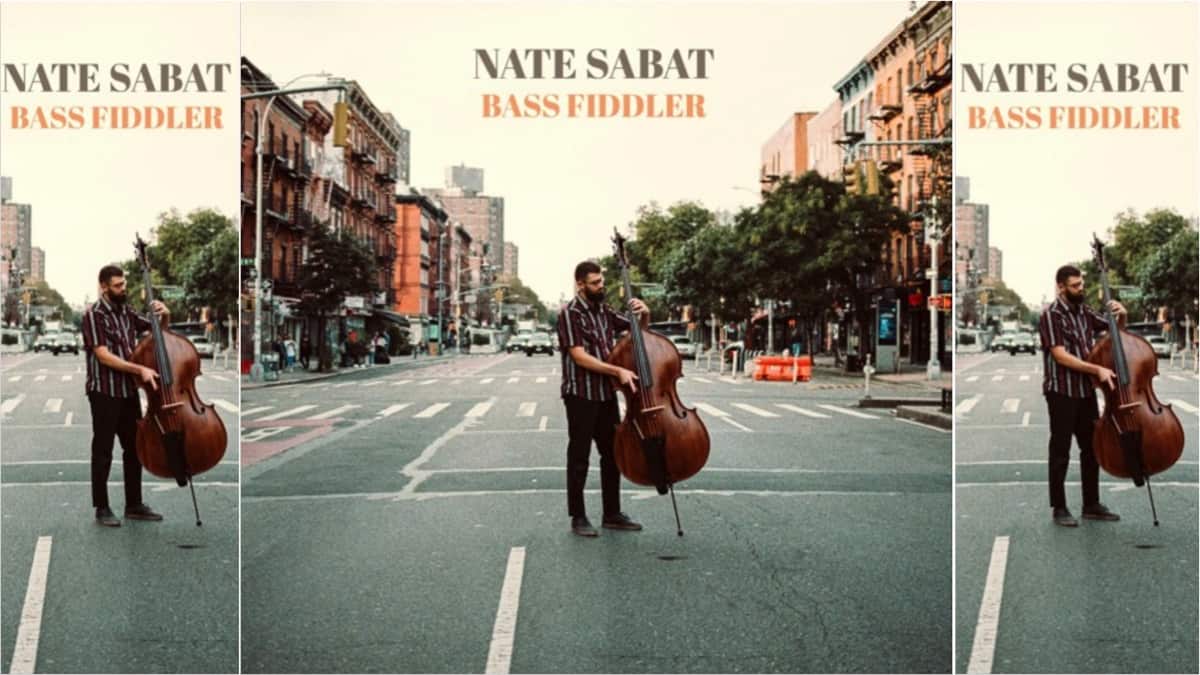
In a thrilling solo debut, bassist Nate Sabat combines instrumental virtuosity with a songwriter’s heart on Bass Fiddler…
The upright bass and the human voice. Two essential musical instruments, one with roots in 15th century Europe, the other as old as humanity itself.
On Bass Fiddler (Adhyâropa Records ÂR00057), the debut album from Brooklyn-based singer-songwriter and bass virtuoso Nate Sabat, the scope is narrowed down a bit. Drawing from the rich and thriving tradition of American folk music, Sabat delivers expertly crafted original songs and choice covers with the upright bass as his lone tool for accompaniment.
The concept was born a decade ago when Sabat began studying with the legendary old-time fiddler Bruce Molsky at Berklee College of Music. “One of Bruce’s specialties is singing and playing fiddle at the same time. The second I heard it I was hooked,” recalls Sabat. “I thought, how can I do this on the bass?” From there, he was off to the races, arranging original and traditional material with Molsky as his guide. “Fast forward to 2020, and I — like so many other musicians — was thinking of how to best spend my time. I sat down with the goal of writing some new songs and arranging some new covers, and an entire record came out.” When the time came to make the album, it was evident that Molsky would be the ideal producer. Sabat asked him if he’d be interested, and luckily he was. “What an inspiration to work with an artist like Nate,” says Molsky. “Right at the beginning, he came to this project with a strong, personal and unique vision. Plus he had the guts to try for a complete and compelling cycle of music with nothing but a bass and a voice. You’ll hear right away that it’s engaging, sometimes serious, sometimes fun, and beautifully thought out from top to bottom.”
While this record is, at its core, a folk music album, Sabat uses the term broadly. Some tracks lean more rock (‘In the Shade’), some more pop (‘White Marble’, ‘Rabid Thoughts’), some more jazz (‘Fade Away’), but the setting ties them all together. “There’s something inherently folksy about a musician singing songs with their instrument, no matter the influences behind the compositions themselves,” Sabat notes. To be sure, there are plenty of folk songs (‘Louise’ ‘Sometimes’, ‘Eli’) and fiddling (‘Year of the Ox’) to be had here — the folk music fan won’t go hungry. There’s a healthy dose of bluegrass too (‘Orphan Annie’, ‘Lonesome Night’), clean and simple, the way Mr. Bill Monroe intended.
All in all, this album shines a light on an instrument that often goes overlooked in the folk music world, enveloping the listener in its myriad sounds, textures, and colors. “There’s nothing I love more than playing the upright bass,” exclaims Sabat. “My hope is that listeners take the time to sit with this album front to back — I want them to take in the full scope of the work. I have a feeling they’ll hear something they haven’t heard before.”
Available online at natesabat.bandcamp.com/album/walking-away








